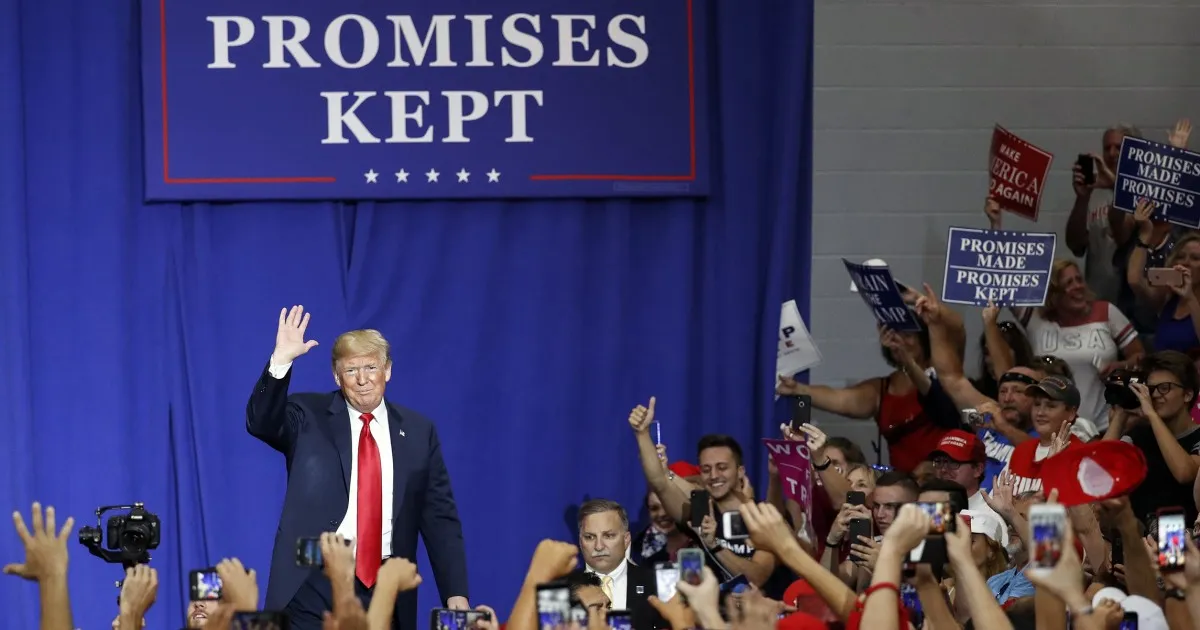Table of Contents
On January 3, the U.S. killed Iranian Major General Qassem Soleimani by a drone strike. Soon thereafter, thousands of memes appeared all over social media including even Stanford Memes for Edgy Trees, expressing tongue-in-cheek worry over the impending outbreak of World War III.
Despite the jokes and even some overblown headlines in the media, World War III was never actually in the cards. But that doesn’t make killing Soleimani a wise decision.
The strike failed by President Trump’s own standard: the assassination of the Iranian general undermined the President’s promise to put America First.
In 2016, Trump ran on a platform of disengaging the United States from forever wars in the Middle East and prioritizing the needs of American citizens at home. In particular, he advocated for “America First” policies like ending mass immigration, renegotiating destructive trade deals, and rebuilding the middle class. Escalating hostilities with Iran distracts policymakers from working towards these goals.
The American people elected Trump, in part, because they were fed up with the DC establishment’s failed policies. Killing Soleimani recalls decades of establishment-approved interventionist ideology that has led the American military into multiple winless wars in the Middle East. Iraq and Afghanistan have cost us $5 trillion and thousands of American lives. Trump promised a change. In that way, the strike was not “unprecedented,” as journalists love to tout, but frustratingly conformist.
While discussing the strike at the Hoover Institution, Secretary of State Mike Pompeo reverted to the rhetorical clichés of former administrations, spinning a familiar narrative of “deterrence” and “restoring credibility in American power.” It’s the same excuse policymakers have peddled for twenty years without any evidence that it works. To the contrary, after seventeen years in Iraq, that country is now effectively a client state of Iran. Killing Soleimani won’t change that.
Instead of withdrawing troops from the Middle East as Trump promised, the U.S. has sent 3,000 more troops into the region following the Soleimani strike. Trump insisted after the strike that his intention was to “stop a war” rather than start one, and later claimed Soleimani was planning attacks on four embassies. None of the intelligence behind this claim has been revealed. Given the recent revelations in the Afghanistan Papers of systematic lying to justify the Bush administration’s military action and conceal blunders, some healthy skepticism is appropriate.
The issue now, as it has been since the early 2000s, is that the U.S.’s presence in the Middle East lacks any clear definition of victory. There has never been an end in sight—not with the invasion into Afghanistan or the subsequent war in Iraq. Soleimani’s killing only pushes the U.S. further into conflicts in the Middle East that are not critical to American security, or the peace and prosperity of our citizens.
Rather than focusing on issues at home, American politicians reflexively meddle in countries halfway around the world. In 2019, Americans considered the top three issues to be the economy, healthcare, and education, according to the Pew Research Center. Admittedly, terrorism is the fourth on the list and remains unresolved. But none of the major terrorist groups that have been targeting American civilians, like al Qaeda and ISIS, are supported by Iran.
It wasn’t Iranian money or citizens behind the attacks on the World Trade Center or the Pentagon. And it’s not Iran that has been flooding America with Oxycontin, fentanyl, and heroin: that’s Purdue Pharmaceuticals, China, and Mexico. In the United States, over 700,000 people died from opiate overdose between 1999 and 2017, with 46,700 in 2017 alone. This dwarfs the total number of deaths than can be attributed to Iran over the past few decades—and that does not include all of the people whose lives have been destroyed by substance abuse or the death of a loved one. It’s time to refocus.
Iraq agrees. Within days of Soleimani’s death, the Iraqi government voted to expel U.S. troops stationed in Iraq and, as recently as Saturday, protestors flooded the streets of Baghdad making similar demands. Here Trump has an opening. The Soleimani strike was a risk, but it may provide him with the cover he needs to do what he promised. The strike appeased neoconservatives in the Republican party, but now it’s time to withdraw.
The Soleimani strike undermined Trump’s “America First” policy. Now that the Iraqi government has voted to send American troops home, the President has an opportunity to make good on his promise. If he manages that, the strike will have been worth it.









